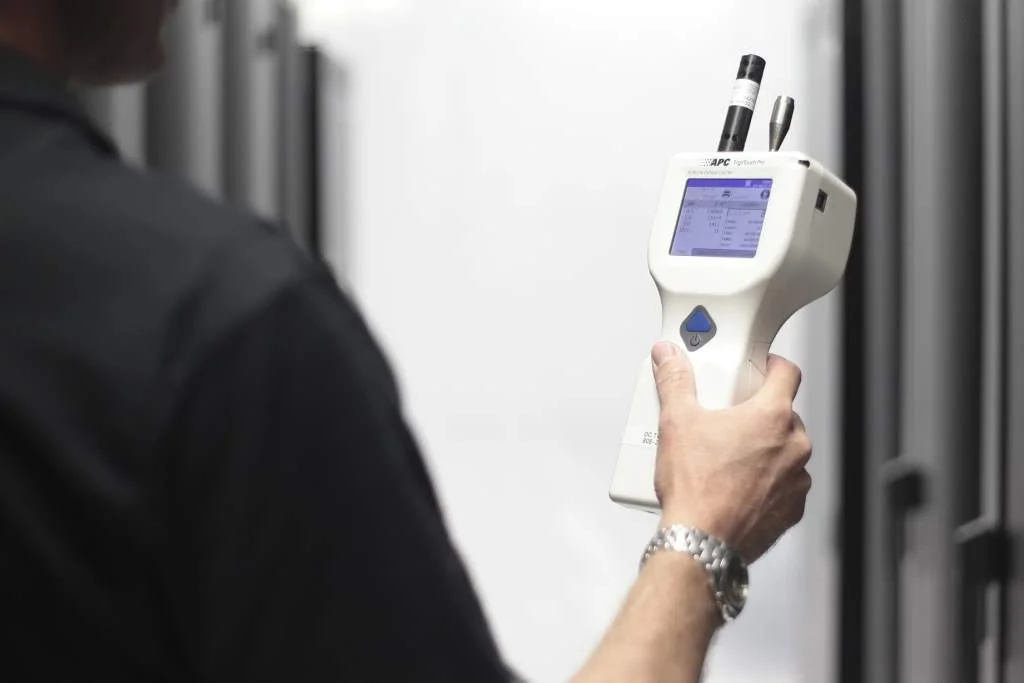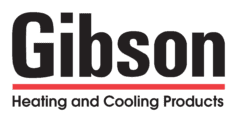Poor Indoor Air Quality Can Silently Undermine Your Health—Here’s How And Why It Matters
Indoor air quality (IAQ) plays a critical role in maintaining a healthy home environment. Yet, it's often overlooked until health symptoms begin to emerge. Poor indoor air quality can result from various sources, including dust, mold, pet dander, volatile organic compounds (VOCs), and inadequate ventilation. In Denver, where seasonal changes and environmental factors also contribute to air quality challenges, indoor air quality testing is essential to safeguard your health.
Common Health Effects of Poor Indoor Air Quality
Prolonged exposure to contaminated indoor air can lead to both short-term and long-term health issues. Some common symptoms and conditions include:
- Allergic Reactions: Sneezing, runny nose, itchy eyes, and skin irritation are common when allergens like dust mites and mold spores accumulate.
- Respiratory Issues: Individuals may experience asthma flare-ups, chronic bronchitis, and difficulty breathing. Continued exposure can lead to permanent damage of lung tissue.
- Headaches & Fatigue: Constant exposure to VOCs and carbon monoxide can lead to chronic headaches, fatigue, and a general sense of lethargy. Mental fog and reduced concentration are also reported.
- Exacerbated Pre-existing Conditions: For individuals with underlying health issues such as asthma or cardiovascular problems, poor air quality can worsen these conditions. Children, the elderly, and those with compromised immune systems are especially vulnerable.
For a deeper understanding of the importance of testing, check out our blog post on Why Indoor Air Quality Testing Is Important For A Healthy Life.
Common Sources of Indoor Air Pollution
Indoor pollutants stem from a variety of sources:
Mold, Mildew, and Humidity Issues
High humidity levels create an ideal environment for mold and mildew growth. Mold spores, which are often invisible to the naked eye, can settle on surfaces and in HVAC systems, leading to significant respiratory problems. Regular home air quality testing in Denver can help identify moisture issues that may lead to mold proliferation and alert you to take corrective measures before the problem worsens.
Chemical Pollutants
Everyday household items such as cleaning products, paints, adhesives, and even some types of furniture emit volatile organic compounds (VOCs). These chemicals, over time, accumulate in poorly ventilated indoor spaces and contribute significantly to indoor air pollution. Additionally, hobbies or activities that involve chemicals—like DIY projects—can also elevate VOC levels if proper ventilation isn't maintained.
Particulates and Dust
Dust, pet dander, pollen, and other particulates often linger in indoor environments, especially if ventilation is inadequate. These particles can aggravate respiratory conditions and lead to persistent allergy symptoms. Regular cleaning combined with efficient filtration systems within HVAC units are critical in managing the buildup of these microscopic irritants.
Inadequate Ventilation
Perhaps one of the most common culprits of indoor air quality issues is insufficient ventilation. Without a steady flow of fresh air, pollutants accumulate, leading to elevated levels of indoor contaminants. In today's energy-efficient homes, airtight building designs sometimes restrict the natural exchange of air, making mechanical ventilation systems and regular air quality assessments even more important.
Impact on Vulnerable Populations
Certain groups are more affected by poor indoor air quality:
Children
Children breathe more rapidly than adults and are often closer to pollutant sources (such as carpets and toys that harbor dust mites). Their developing respiratory systems make them particularly sensitive to air contaminants, placing them at higher risk of allergies, asthma, and other respiratory issues.
Elderly Individuals
Older adults frequently have weakened immune systems and may already be managing chronic health conditions. Poor indoor air quality can exacerbate conditions like heart disease and lung disorders, reducing overall quality of life.
Individuals with Pre-existing Health Conditions
For people suffering from asthma, COPD, or cardiovascular diseases, exposure to pollutants can trigger severe health episodes. Even minor fluctuations in air quality might result in significant health complications for these individuals.
Long-Term Health Consequences
While short-term exposure to poor indoor air quality may result in acute symptoms like headaches and sneezing, long-term exposure can have deeper health implications:
Chronic Respiratory Conditions
Extended exposure to airborne irritants can cause permanent lung damage. Over time, individuals may develop chronic respiratory conditions, which reduce lung capacity and make everyday activities more difficult.
Increased Cardiovascular Risk
Airborne pollutants have been linked to increased blood pressure and a higher incidence of heart attacks. The body's response to prolonged exposure results in inflammation and cardiovascular stress, potentially leading to heart disease.
Cognitive Impact and Fatigue
Constant exposure to low levels of pollutants may lead to subtle cognitive decline over time. Chronic exposure not only diminishes mental clarity but also significantly impacts energy levels and overall mental well-being.
Potential Carcinogenic Effects
Certain indoor pollutants, especially those stemming from chemicals and VOCs, have been identified as carcinogens. Although typically a result of very long-term exposure, such risks reinforce the critical need for maintaining clean indoor air.

How to Assess Your Indoor Air Quality
Professional Air Quality Testing
While DIY air quality monitors provide a basic snapshot of your environment, nothing beats the precision of professional air quality testing services in Denver. A certified indoor air quality testing company will conduct comprehensive assessments to identify specific contaminants and quantify their concentrations. This detailed information is critical for formulating effective remediation strategies.
Home Air Quality Testing Tools
For those who are initially curious, the best indoor air quality monitors available in Denver can offer insight into various parameters like humidity, VOC levels, particulate matter, and carbon dioxide. However, if persistent issues are suspected, professional air quality testing is the recommended course of action.
Indoor Air Quality Monitoring Systems
Implementing a continuous indoor air quality monitoring system can help track your IAQ in real time. These systems provide ongoing data and can alert you to any sudden changes or declines in air quality, allowing prompt intervention.
To explore further ways of improving air quality using your HVAC system, check out 5 Ways You Can Improve Indoor Air Quality Using Your HVAC System
Proven Indoor Air Quality Solutions
With the sources and impacts of indoor air pollution clearly understood, addressing the problem becomes a matter of choosing the right solutions:
Ventilation Improvements
Increasing fresh air circulation is one of the most effective ways to combat indoor air pollution. Upgrading your HVAC system or installing exhaust fans can significantly improve air exchange rates, thereby diluting pollutants. Even simple measures like opening windows on milder days can contribute to improved air quality.
Air Purification
Investing in high-efficiency particulate air (HEPA) filters and air purifiers can substantially reduce the level of allergens, mold spores, and other pollutants in your indoor environment. Modern air quality monitoring systems can help track the efficiency of these devices and ensure they are functioning correctly.
Regular Maintenance & Cleaning
Routine maintenance of your HVAC system is crucial. Cleaning ductwork, replacing filters regularly, and ensuring that the system is free of mold and dust buildup can greatly improve overall indoor air quality.
Moisture Control
Since high humidity is a key contributor to mold growth, keeping indoor humidity levels in check is vital. Utilizing dehumidifiers, ensuring proper insulation, and promptly repairing water leaks are simple yet effective strategies to maintain optimal moisture levels.
Expert Consultation and Remediation
While DIY solutions can provide temporary relief, comprehensive remediation often requires the expertise of indoor air quality specialists. These professionals conduct detailed assessments and recommend strategies tailored to your specific indoor environment.
For a clearer picture of the benefits of professional testing and remediation, refer to our guide on 7 Signs You Need An Air Purification System In Your Home.
The Benefits of Hiring Professional Indoor Air Quality Specialists
Poor indoor air quality is a multifaceted issue that requires expert handling. Here’s why hiring professionals is paramount:
- Expertise and Experience: Indoor air quality specialists are equipped with advanced tools and testing methods that ensure accurate assessments of your indoor environment.
- Accurate and Actionable Data: Professional air quality testing services provide detailed reports highlighting pollutant levels and offering actionable recommendations for remediation.
- Customized Solutions: Professionals design tailored solutions that address the unique challenges of your property, from layout and HVAC efficiency to specific pollutants that may be present.
- Long-Term Savings: Proper remediation not only safeguards your health but can also lead to significant energy savings by improving the efficiency of your HVAC system.
- Peace of Mind: By relying on proven methods and expert guidance, you can rest assured that your living or working environment is healthy and safe.
In Denver, where environmental conditions and urban factors can complicate air quality management, the expertise of professional indoor air quality consultants is invaluable, like Teamworks Mechanical.
Practical Tips for Daily Improvement of Indoor Air Quality
While professional services are critical, there are everyday practices you can adopt to maintain cleaner indoor air:
- Regular Cleaning: Dust and vacuum frequently using HEPA filters to reduce allergen buildup.
- Natural Cleaning Products: Choose nontoxic, natural cleaning agents to minimize the emission of VOCs.
- Proper Ventilation: Utilize exhaust fans in areas like kitchens and bathrooms to remove excess moisture and airborne pollutants.
- Monitor Humidity: Keep indoor humidity between 30-50% using a hygrometer. Adjust with a dehumidifier or humidifier as needed.
- Routine HVAC Maintenance: Regularly service your HVAC system, including cleaning ducts and replacing filters, to maintain optimal performance and air quality.
These practices, combined with periodic professional interventions, can significantly enhance the quality of the air you breathe.
Breathe Easy with Professional Help
The air you breathe is foundational to your health, influencing everything from cognitive function to cardiovascular wellness. Poor indoor air quality can lead to persistent health issues, reduce productivity, and diminish quality of life. Whether you're looking to protect your family at home or maintain a healthy environment in your business, it’s crucial to address indoor air quality issues before they escalate.
To truly improve indoor air quality in Denver, consider partnering with professionals who specialize in comprehensive air quality testing and remediation solutions. By investing in reliable testing, continuous monitoring, and tailored remediation, you can ensure that the environment you and your loved ones inhabit is both safe and invigorating.
Don’t compromise on your health. Contact a trusted indoor air quality specialist today to take the first step towards a cleaner, fresher, and safer space.
For more detailed insights and tips, explore our blog and discover how you can enhance your living space through smart air quality management.




















